Hello and a warm welcome to new subscribers! Nice to have you here😊 Author Abroad is a newsletter on reading, writing, and life abroad—though usually not all in the same issue! I generally post once a month, alternating between reflecting on the craft of writing and/or the publishing industry, musing about my former life abroad, and/or reviewing some of books I’ve read recently.
Life abroad
This past month, I’ve been thinking a lot about USAID. There’s been no shortage of news coverage about the current US Administration’s efforts to dismantle the nearly 64-year-old agency, so rather than trying to summarize what others have already done so well, I recommend the following New York Times essays and articles, which cover not only the breadth and depth of USAID programs and devastating effects of stopping them so suddenly, but also the strategic and political capital that USAID programs grant the U.S. by strengthening diplomatic ties, establishing goodwill around the world, and protecting our political, economic and security interests:
Killing U.S.A.I.D. Is a Win for Autocrats Everywhere by former USAID Director Samantha Power published on February 6, 2025.
With Aid Cutoff, Trump Halts Agency’s Legacy of ‘Acting With Humanity’ by Apoorva Mandavilli published on February 8, 2025.
‘We Are Seeing Complete Destruction’: The Damage Done by the U.S.A.I.D. Freeze by Jeremy Konyndyk published on February 21, 2025.
The Influence of Foreign Aid by Jeffrey Gettleman published on February 21, 2025.
These are all gift articles, so you should be able to access them without a NYT subscription, but let me know if not, and I’ll send it to you directly.
What I want to talk about here today is the nature of aid work, and what it means to be an aid worker. Given the trajectory of my early career in international development and humanitarian assistance, shaped as it was by the decision I made to follow my husband’s work with the World Food Programme, I’ve had the pleasure, privilege, and occasional aggravation of working for many different aid organizations. These range from large UN agencies1 to a variety of American, international, and local non-governmental organizations (NGOs).2 Oddly, I never worked directly for USAID, but the aid world is an intimate one. I’ve had many friends and colleagues over the years who were employed by USAID, and I certainly worked on plenty of USAID-funded projects.
Aid workers, especially those in the field, are among the most dedicated and hard-working people I’ve ever known. They are passionate, self-sacrificing, and by some estimations a little nuts—choosing to live in harsh and/or dangerous conditions with frequent power cuts, limited water supply, high potential for violence, exposure to dangerous diseases like malaria and dengue fever, and dicey medical facilities. Aid cowboys of sorts. Conditions are not always this bad, of course. Later in your career, you’ll usually have decent housing with mosquito netting on your windows and bed, a generator for power cuts, and a security backup to help mitigate against the fact that you are a highly visible and attractive target for crime. You might even be lucky enough to live in a house with a pool—though not if you work for USAID, because that’s against U.S government regulations, for liability reasons.
Regardless of where you are in your career, aid workers in the field have a reputation for working night and day, because their work is their life. The intimacy of the aid community means that your work colleagues are also your friends, your family, your roommates, your lovers, your frenemies, or worst of all, the parents of your children’s friends—then you really better behave! You talk about work at school drop-off, at the grocery store, at dinner parties, and at the doctor’s office. I one time had my Turkish gynecologist in Malawi tell me the results of my pap smear at the grocery store! Often you live in the same house or compound with your work colleagues and meet them under even more personal circumstances.
To pursue a career in international development and humanitarian assistance is to know that you will uproot yourself every few years, leaving behind not only the comforts of home, but the people you love and the friends you’ve made along the way. For those with families, it means putting your children through the same rigmarole before they’re old enough to have a say. They grow up caught between cultures, outsiders both in their host country where they have no cultural ties, and in their parents’ home countries where they’ve never lived. You alternate between thinking this exposure to the world is the greatest gift you could give them and lying in bed at night worrying that you’ve denied them a “normal” childhood and caused them irreparable damage.


Aid work is also incredibly rewarding. Among the myriad projects I’ve worked on, the ones I remember with the most fondness are the smaller, more niche projects, like designing a de-mining and landmine awareness program in war-torn Angola, writing a manual for local NGO participation in civil society in post-war Mozambique, conducting a case study on discriminatory inheritance laws in Malawi, and training women in The Gambia to upgrade their sesame crop to export quality.
Throughout this circuitous career, I also wrote a lot of funding proposals. Some of these proposals sought USAID funding, while others sought funding from the European Union, or the Australian Aid program, or one of the many UN agencies. USAID may be one of the biggest aid agencies, but it is by no means the only one. As a donor, USAID was considered generous but also, frankly, a pain in the ass. They insisted on the strictest accounting, monitoring, and evaluation standards, required frequent meetings and field visits, and seemingly endless progress reports. One particularly fond memory I have from early in my career was sitting with a local Gambian colleague named Pierre to help him navigate the quagmire of writing a progress report for a USAID-funded project.
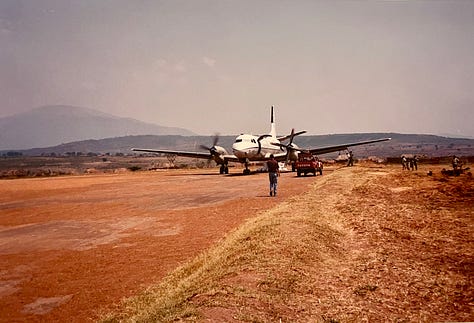
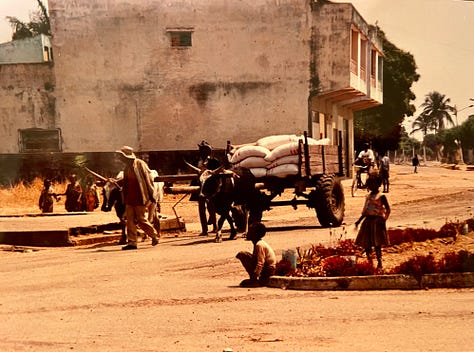
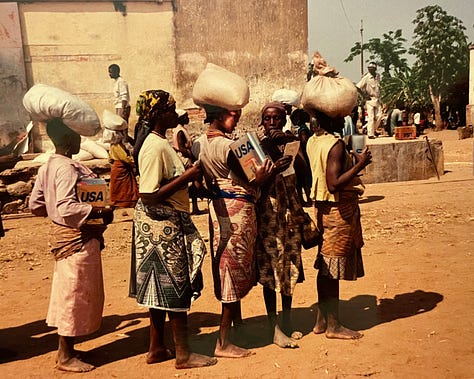
The purpose of these rules and regulations, of course, is to make sure US tax dollars are spent efficiently, effectively, and for their intended use. Contrary to what some people may think, USAID funds are rarely squandered, misused, or abused. It’s absurd to hear USAID vilified as corrupt and incompetent when the opposite couldn’t be more true. And it’s heartbreaking to think of my former USAID colleagues having to pack up their lives, pull their children out of school, say goodbye to the friends they’ve made, and leave their unfinished work on such recklessly short notice.
Thank you for spending these few minutes with me. I’d love to hear your impressions of USAID and the nature of aid work.
💕 Liz
These have included the World Food Programme (WFP) in Mozambique and Italy, UNICEF in Belize and Malawi, UNDP in Mozambique, UN Women in Bangladesh, and UNIFEM in New York.
These have included: CARE in Mozambique; Concern Worldwide in Malawi; Catholic Relief Services (CRS) in The Gambia, Angola, and Malawi; National Democratic Institute (NDI) in Mozambique; Grassroots International in Cambridge, Massachusetts; The Saint Alban’s Street Children Project in Tanzania; and PEN Myanmar.

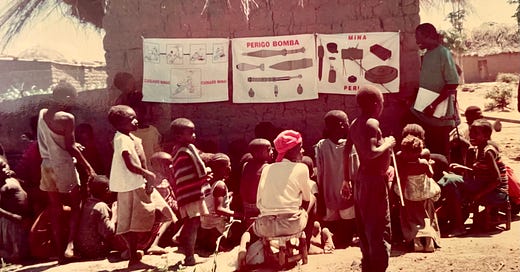


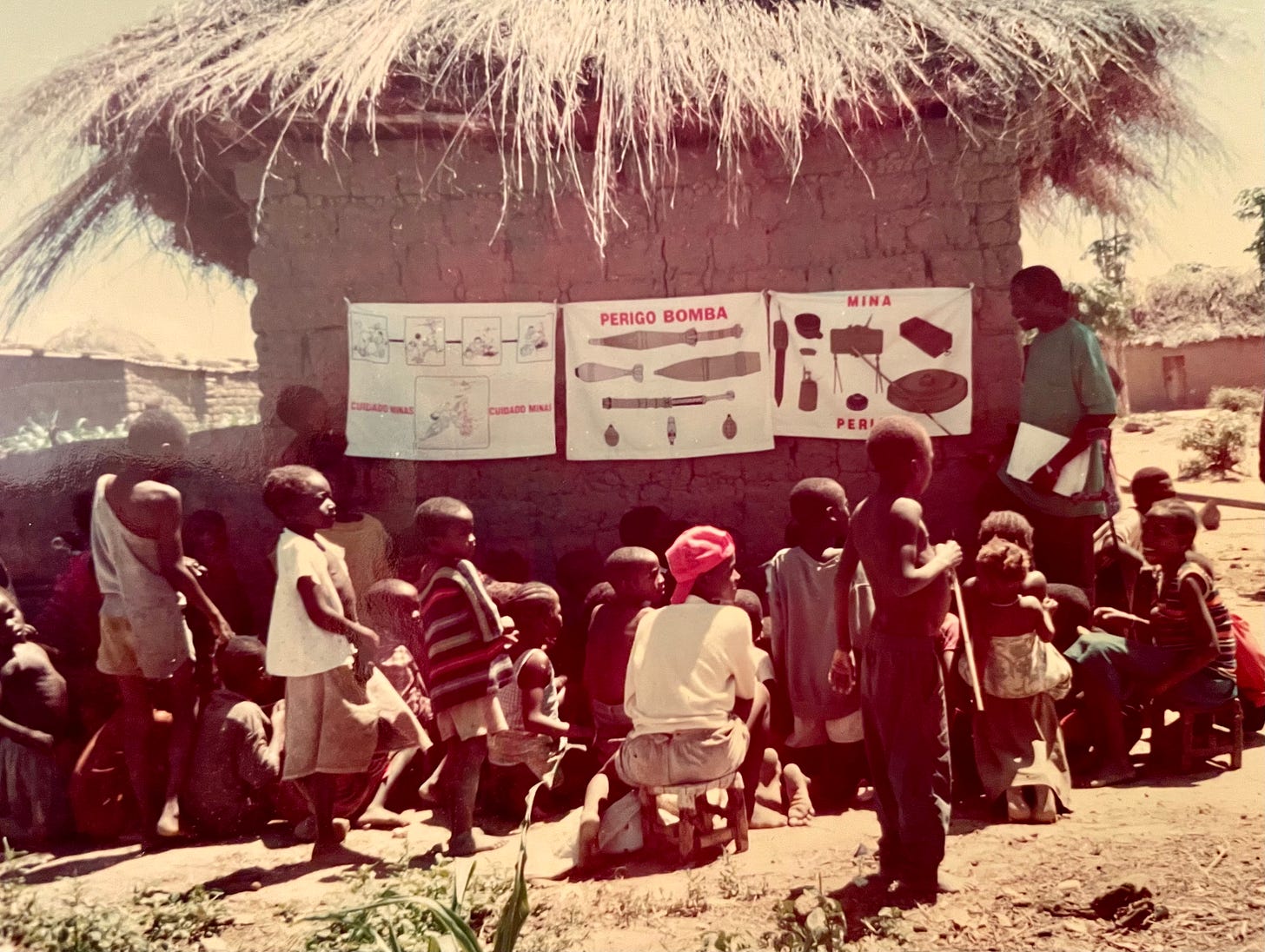
Liz, my daughter was one of the people who lost their job in the USAID debacle, so this post really hit home for me. Thank you.
It is wonderful to get a communication from someone who has walked the walk. My parents were in Peace Corps '96-'98. My father worked for the EPA his entire career. I appreciate the mention of the quagmire of paperwork. Not entirely rosy eyed about USAID, but noting the good FAR outweighs the frustrating. I do think government could be streamlined - red tape reduced, but never cutting whole programs that do invaluable work. I worked at Harvard in admin for many years and my job included making admin more efficient and effective. This does often reduces staff, but only where in makes sense. In my opinion, government reduction should be that.